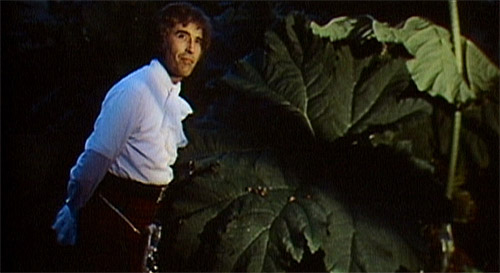Reviewer: Emera
Date read: 11.27.2021
Book from: Library
Well, this was disappointing! I maintain that The Exorcist has one of the most compelling moral/existential conflicts of any work of media: a priest of failing faith is called in to deal with a horrifying case of putative possession, which may therefore prove the existence of the Devil… and of God?
However, the novel has all the failings that I think screenwriter-novelists are prone to: the descriptions are embarrassingly hammy, the dialogue contorts itself into the appearance of cleverness (Chris’ breathless, gee-whiz slanginess may be the worst), characters repeatedly declare their own identities (“As a Jesuit, I…”), there’s an excess of melodramatic sentence fragments and one-sentence paragraphs, etc. Blatty is also unusually attached to the rhetorical device of zeugma (“He lowered his face into his hand, and self-doubt”), which, again, draws excessive attention to itself given the frequency with which he uses it. So, speaking of lowering faces into hands… this book induced many facepalms.
The first sentence of the first chapter (after the prologue) is characteristically bad: “Like the brief doomed flare of exploding suns that registers dimly on blind men’s eyes, the beginning of the horror passed almost unnoticed; in the shriek of what followed, in fact, was forgotten and perhaps not connected to the horror at all.” As a friend who’s also reading the book remarked, “Oh yeah, just like the brief doomed flare of exploding suns, plural.”
I got a bit of a thrill from how tense, well-paced, and procedurally absorbing the book can be – Blatty’s research into psychology, medicine, and paranormal history is admirable – but it wasn’t the terrifying, exalted experience I was hoping for. I do still admire The Exorcist as a historically important and in many ways ingeniously crafted horror novel, and it was fascinating to evaluate in light of the numerous podcast episodes I’ve been listening to about the Satanic Panic in the 70s and 80s. A salient point made by Sarah Marshall in the podcast You’re Wrong About is that horror media and news coverage of purported Satanic cases actually drove a public appetite for exorcisms (previously obscure as a Catholic ritual). Quite interesting to think about in light of the fact that The Exorcist is a blatantly pro-Catholic/Christian novel.
Nonetheless: so far, I’m not doing so great with the classic horror novel reads, between this and ‘Salem’s Lot…

